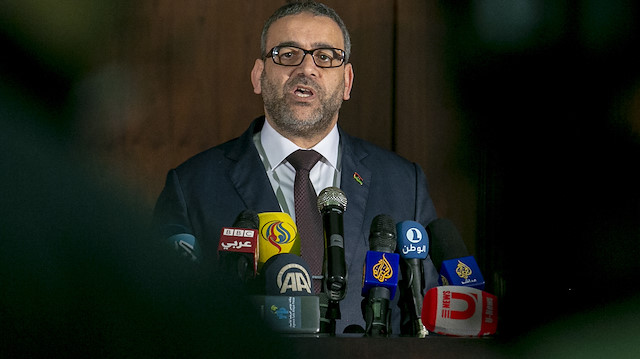
Sides accepted cease-fire on Jan. 12 in response to call by Turkish, Russian presidents
"The Gulf countries were present in the cease-fire negotiations in the capital Moscow, including the charge d'affaires of the UAE embassy to Russia, who was one of the obstacles on the signing of the cease-fire agreement in Libya," al-Mishri said at a press conference in Tripoli.
"The Russian proposal for a cease-fire was written in a format to satisfy the aggressor [referring to Haftar forces]," al-Mishri said.
On Jan. 12, the warring sides in the Libyan conflict announced a cease-fire in response to a call by Turkish President Recep Tayyip Erdogan and Russian President Vladimir Putin, and gathered Monday in Moscow to sign an agreement aimed at ending hostilities and starting a political dialogue.
Following talks in Moscow, head of the UN-backed Government of National Accord Fayez al-Sarraj signed the ceasefire deal, but Haftar left early Tuesday without signing and asked for more time.
Aguila Saleh, the speaker of the pro-Haftar House of Representatives in the eastern city of Tobruk, said "the ceasefire in Libya is over and the war will resume."
Since the ouster of late ruler Muammar Gaddafi in 2011, two seats of power have emerged in Libya: one in eastern Libya supported mainly by Egypt and the UAE, and the other in Tripoli, which enjoys the UN and international recognition.
Hello, the comments you share on our site are a valuable resource for other users. Please respect other users and different opinions. Do not use rude, offensive, derogatory, or discriminatory language.
The floor is all yours.








